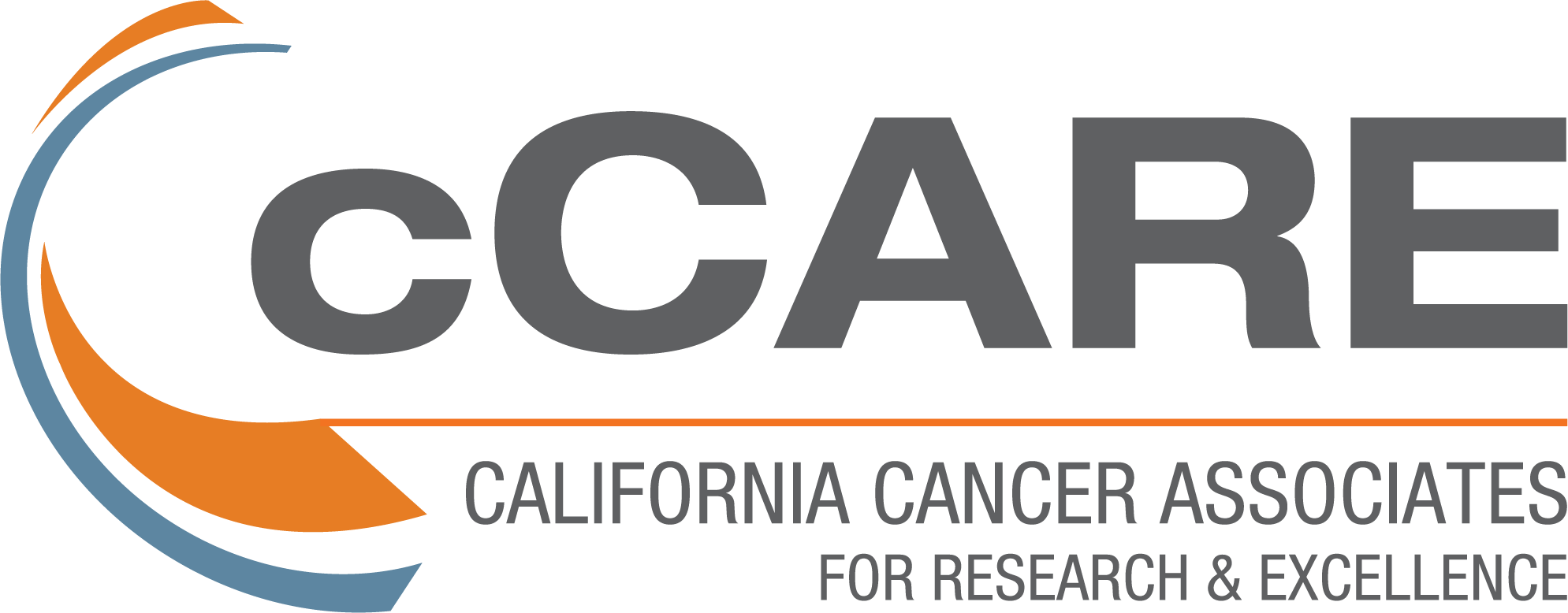Cancer Survivorship Care for a new normal
cCARE’s Cancer Survivorship Care provides patients with valuable information on what to expect once they have been successfully treated for cancer. Connecting patients and loved ones with resources as we do helps them to move forward, re-engaging in life after cancer, and discovering their “new normal.”
After navigating this challenging season in life, patients often feel alone, disconnected, and unsure of how to move forward and what comes next. By providing a treatment summary and survivorship care plan, and discussing the challenges patients might face after completing cancer treatment for cure, cCARE extends the continuum of care, helping individuals transition from cancer patients to cancer survivors.
Goals of Cancer Survivorship Care
The goal of our Survivorship Care is to create an individualized, comprehensive plan, addressing all aspects of a patient’s ongoing care after cancer treatment. This plan provides a road map, helping patients understand what to expect when their primary cancer treatment is complete and how to move forward. Understanding the next steps allows patients to take responsibility for their follow-up care and engages them to evaluate aspects of their lifestyle they can change, ultimately promoting better health and reducing the risk of recurrence. The information provided empowers the cancer survivor to be a partner in his or her ongoing care.
Survivorship Care vs. survivorship programs
While there are many different types of survivorship programs for cancer patients, cCARE’s Survivorship Care is unique. Survivorship programs often retain a medical model that keeps patients interfacing with doctors, nurse practitioners and other healthcare providers in a disease-oriented, clinical mindset.
At cCARE, Cancer Survivorship Care is geared toward preparing patients to evaluate and define their new normal outside the disease-oriented interfacing they’ve been through. Survivorship Care first arms patients with valuable information. Then we connect them with fitness programs, mental health resources so they can manage the emotions and psychological impact of their past cancer. All of these efforts help to transition patients away from a clinical mindset and into their new, real-life environment.

Rewriting the Cancer Story
Breast Cancer Survivor Helps Patients Seek Hope and Wellness
Susan Webster is a fit, thriving sports medicine enthusiast who founded a nonprofit cancer patient support program in 2013, after surviving breast cancer herself.
Read MoreHow we engage survivors
The experience of cancer fundamentally changes people. When patients begin cancer treatment, a care provider prepares them for what their treatment will be like, how often they will have to come in for the treatments, and all of the necessary details they need to know.
Similarly with our Survivorship Care, patients engage in a one-on-one meeting with their key care provider to review their treatment summary and recommended follow-up care, address any fears or concerns and discuss their personalized Survivorship Care plan.
The Survivorship Care plan includes these elements.
- Detailed list of all the treatments and medications the patient has undergone. Often patients have taken a number of medications or undergone more than one treatment. Compiling all of this important information into a single, easily accessible packet helps not only patients but also updates their primary care provider, other specialists they may see for noncancer-related problems, and provides a quick reference when visiting new doctors involved in their care in the future.
- Information on the late and long-term side effects of those treatments and medications. After overcoming cancer, it is easy to have fear and anxiety regarding any new ache or pain. By including information on side effects of medication or lingering effects of cancer treatment, the Survivorship Care plan can help alleviate some of these fears by providing patients information on symptoms that need to be reported immediately and those that are less concerning. Knowing which symptoms are common and harmless, and which might indicate a recurrence, can reduce anxiety as well as improve the overall quality of life for the cancer survivor.
- Establishing a new support network. While patients are in treatment, they have a support network of doctors, nurse practitioners and nurses who can answer their questions. After treatment, patients often don’t know where to turn to get answers. During the survivorship visit, care providers can answer any questions and also give clear information to the patient on who to ask any future questions they may have.
- Mental health resources. The Survivorship Care plan also includes resources to help manage the emotional and psychological toll on a survivor that comes with the very real fear of recurrence. These resources also help patients deal with similar mental health issues they may experience as a result of the cancer or the treatment. We connect patients to therapists and support groups to assist with navigating life after cancer.
- Lifestyle changes. While most cancers are a result of random bad luck, survivorship care can help identify unhealthy behaviors that may have indirectly contributed to the cancer, or that may increase the risk of recurrence. Identifying those habits and connecting patients with resources to address problem areas and make lifestyle changes can help prevent recurrence as well as improve overall health. cCARE provides resources on complementary and integrative medicine, including yoga and fitness classes, acupuncture, nutrition counseling and more.
- Connect patients with referral care providers. Whether patients need a social worker, physical therapist, weight loss group or smoking cessation counseling, cCARE will work with them to find appropriate contacts for each unique situation.
- Follow-up care outline. The Survivorship Care plan details important follow-up care information such as the frequency of appointments, what to expect at visits, and any additional information that is relevant to the patient’s specific cancer.
After assessing ongoing needs and discussing and updating the plan with patients, it is sent to all providers involved in the patient’s ongoing care. This can include primary care providers, surgeons, radiation oncologists and other specialists the patient has identified as important to their ongoing care.
The plan clearly outlines what cCARE oncology providers will do for surveillance and follow-up appointments and what care is needed from other providers. This step also helps patients avoid any confusion when communicating with both their current doctors and any future physicians about the treatment(s) they have undergone
Survivorship Care has been ongoing at cCARE San Diego since 2014 and is now available for cCARE Fresno patients.

Stronger Than Cancer
Hear real patients talk about their treatment and life after cancer.
Patient Stories